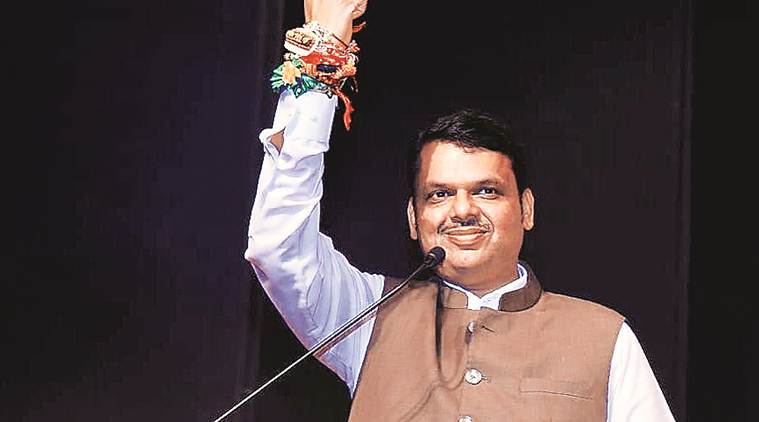
Members of Shetkari Sanghatana met Chief Minister Devendra Fadnavis and demanded access to technology in a memorandum, highlighting the high cost of labour which makes the adoption of the unauthorised HTBt hybrid more profitable for the farmer.
The Sanghatana has embarked on a satyagraha to press for their demand. In the cotton zone of Vidarbha, the farmer’s organisation has been asking for HT (herbicide tolerant) Bt (Bacillus thuringiensis) cotton as it is helped control labour cost. This June, the farmer’s body had undertaken a satyagraha for mass plantation of this variant.
The cotton hybrid is obtained by introducing genes Cry1Ab and Cry1Ac from the soil bacterium Bt, aimed at making the crop immune to the attack of pink bollworm. The addition of another alien gene Cp4 Esps from another soil bacterium Agrobacterium tumefaciens allows the crop to develop a protein which protects itself from the application of popular herbicide glyphosate.
In the first generation or Bt cotton, the application of glyphosate results in destruction of both the crop as well as the weed as the chemical is unable to distinguish between the two.
HTBt cotton, however, allows farmers to apply this herbicide and thus reduces the cost of weeding. On an average, farmers spend Rs 10,000 to Rs 15,000 in the entire 180-day life cycle of the crop.
The cost of weeding is more than halved in case of HTBt cotton, which has led to farmers undertaking plantation of the crop although this variant is not authorised.
The Genetic Engineering Appraisal Committee (GEAC) is yet to authorise the release of this variant as in 2016, Bayer Monsanto had withdrawn its application submitted before the committee in 2013.
While it still remains unauthorised, farmers have continued to plant the variant relying on smuggled seeds. It is estimated that around 40 to 45 per cent of the state’s 40 lakh hectares of cotton fields have gone under this unauthorised variant.
Laxmikant Kauthakar, spokesperson of the Sanghtana, said their memorandum had pointed out how farmers did not want to flout laws but economic distress was pushing them to do so.
“Prime Minister Narendra Modi has talked about doubling farmer’s income and this technology can allow us to double our income,” he pointed out.
Fadnavis leads a high-level national committee formed to study problems of agriculture.
Kauthakar has planted the variant on his field as well. The crop condition, he said, was excellent and many farmers had come to visit his field.
“This year, due to good rain, the growth of the crop as well as the weeds is lush and thus the cost of weeding has doubled,” he said. Farmers who had gone in for HTBt, he said, were able to address the problem better.